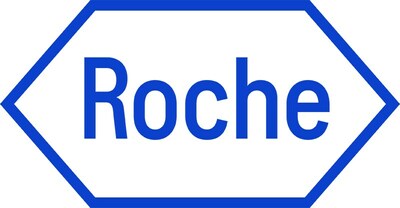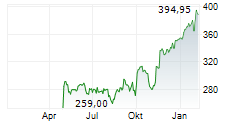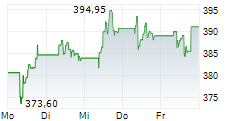- New research shows that people aged 29-42 are more likely to miss cervical screenings than any other age group.1
- Almost one third of surveyed European millennials eligible for routine cervical screening have postponed or skipped their appointment.1
- Cervical cancer is one of the most preventable cancers, with almost all cases avoidable through vaccination and regular screenings.2
BASEL, Switzerland, Nov. 12, 2025 /PRNewswire/ -- Roche (SIX: RO, ROG; OTCQX: RHHBY) announced today research findings showing that 31% of eligible millennials have postponed or missed their cervical screening appointments - 27% higher than the average across all age groups. The findings come from a survey of 5,518 internet users aged 16-64 commissioned by Roche and conducted by GWI across six European countries.1

Despite screening services being widely available free of charge or heavily subsidised in many countries, for the millennials surveyed, specific challenges make accessing routine cervical screening difficult. In addition to the well-documented fears reported over pain, embarrassment or stigma surrounding screenings,1 the research reveals that millennials face a particular challenge in balancing careers, caregiving responsibilities, and relationships. These overlapping commitments appear to push cervical screenings - which remain vital for detecting HPV, the cause of over 99% of cervical cancers3 - to the bottom of their priorities, resulting in higher rates of missed or delayed appointments compared to other groups.
"Millennials are often said to be the 'have it all generation,' juggling careers, caregiving, and societal expectations. Yet, they tend to put themselves last," said Joanna Sickler, Vice-President, Health Policy and External Affairs at Roche Diagnostics. "The research shows that millennials are disproportionately failing to prioritise cervical screening, because of a mix of emotional, logistical, and societal pressures. It's critical to design solutions like self-sampling that allow screening to fit into their reality. It's not just important, it's essential to saving lives."
The findings highlight the importance of practical, tailored interventions that address the barriers millennials face. Commenting on the results, Professor Daniel Kelly OBE, Cardiff University, and Co-Chair of the HPV and Hep B Action Network at the European Cancer Organisation said: "Healthcare systems must evolve to meet women where and how they live offering flexible, person-centred screening options and access to vaccination while fostering open dialogue and community engagement that normalise cervical health as a shared responsibility."
Fear remains the biggest barrier to cervical screening attendance. Thirty percent of all women cite fear as the primary reason for missing or delaying their appointments, driven by anxiety about discomfort, pain, or the potential results. The survey also found that professional commitments and workplace demands are a major factor, and the second-largest barrier for all participants. High-income earners (top third of income ranges across markets) are 22% more likely than average to delay appointments, and 27% of this group cite workplace demands as the reason for postponement. Millennials who delayed or cancelled screening appointments are 20% more likely than the general population to say that greater workplace flexibility and encouragement would help them prioritise cervical screenings.
Caregiving responsibilities add another layer of complexity, particularly for parents. For many, the demands of family life take priority over personal health, with 27% of parents surveyed reported they had delayed or cancelled cervical screening appointments.
These challenges are compounded by a lack of awareness and discussion around cervical screening, with half of women surveyed believing there are no schemes to support or subsidise healthcare appointments. Additionally, nearly 50% of respondents, including 43% of millennials, admitted they had never spoken to anyone about cervical screening, highlighting a pervasive cultural discomfort that leaves many without the emotional support or encouragement needed to prioritise screenings.
Practical and emotional support are key to improving attendance rates. Among millennials who postponed their screenings, 12% identified assistance with travel or childcare as a significant motivator, while 19% said greater workplace flexibility and encouragement from employers would help them prioritise their appointments. Emotional support also plays a role, with 10% saying they would be more likely to attend if encouraged by family, friends, or colleagues.
Cervical cancer: it only ends with all of us
Every year, cervical cancer affects more than 600,000 women globally,2 yet it is preventable in almost all cases through vaccination, early detection, and treatment of precancers.2 At Roche Diagnostics, we are committed to the elimination of cervical cancer through collective action. Our campaign, Cervical cancer: it only ends with all of us, focuses on reducing barriers to access, normalising conversations about cervical health, and enabling more eligible individuals to attend their routine screenings.
Roche is working alongside healthcare systems, governments, and communities to provide flexible screening options such as self-collection, inclusive education, and clear communication about the importance of early detection. Together, we can help improve attendance rates, empower individuals to take action for their health, and prevent cervical cancer from claiming more lives. Eliminating cervical cancer starts with all of us.
For more information, visit: https://roche.com/stories/cervical-cancer-it-only-ends-with-all-of-us
About Roche
Founded in 1896 in Basel, Switzerland, as one of the first industrial manufacturers of branded medicines, Roche has grown into the world's largest biotechnology company and the global leader in in-vitro diagnostics. The company pursues scientific excellence to discover and develop medicines and diagnostics for improving and saving the lives of people around the world. We are a pioneer in personalised healthcare and want to further transform how healthcare is delivered to have an even greater impact. To provide the best care for each person we partner with many stakeholders and combine our strengths in Diagnostics and Pharma with data insights from the clinical practice.
In recognising our endeavour to pursue a long-term perspective in all we do, Roche has been named one of the most sustainable companies in the pharmaceuticals industry by the Dow Jones Sustainability Indices for the fifteenth consecutive year. This distinction also reflects our efforts to improve access to healthcare together with local partners in every country we work.
Genentech, in the United States, is a wholly owned member of the Roche Group. Roche is the majority shareholder in Chugai Pharmaceutical, Japan.
For more information, please visit www.roche.com.
All trademarks used or mentioned in this release are protected by law.
[1] GWI - Roche. Cervical Cancer Europe Study 2025.
[2] World Health Organisation. Cervical Cancer Factsheet. Available at URL: https://www.who.int/health-topics/cervical-cancertab=tab_1
[3] Centers for Disease Control, Cancers caused by HPV. Available at URL: https://www.cdc.gov/hpv/about/cancers-caused-by-hpv.html
Roche Diagnostics Communications
Kathryn Ager
Senior Communications Business Partner, Roche Diagnostics
kathryn.ager@roche.com
Phone: +44 07745 115046
Logo - https://mma.prnewswire.com/media/2339048/Roche_Logo.jpg
![]() View original content:https://www.prnewswire.co.uk/news-releases/millennials-at-highest-risk-of-missing-crucial-cervical-cancer-screenings-finds-survey-commissioned-by-roche-302611928.html
View original content:https://www.prnewswire.co.uk/news-releases/millennials-at-highest-risk-of-missing-crucial-cervical-cancer-screenings-finds-survey-commissioned-by-roche-302611928.html




